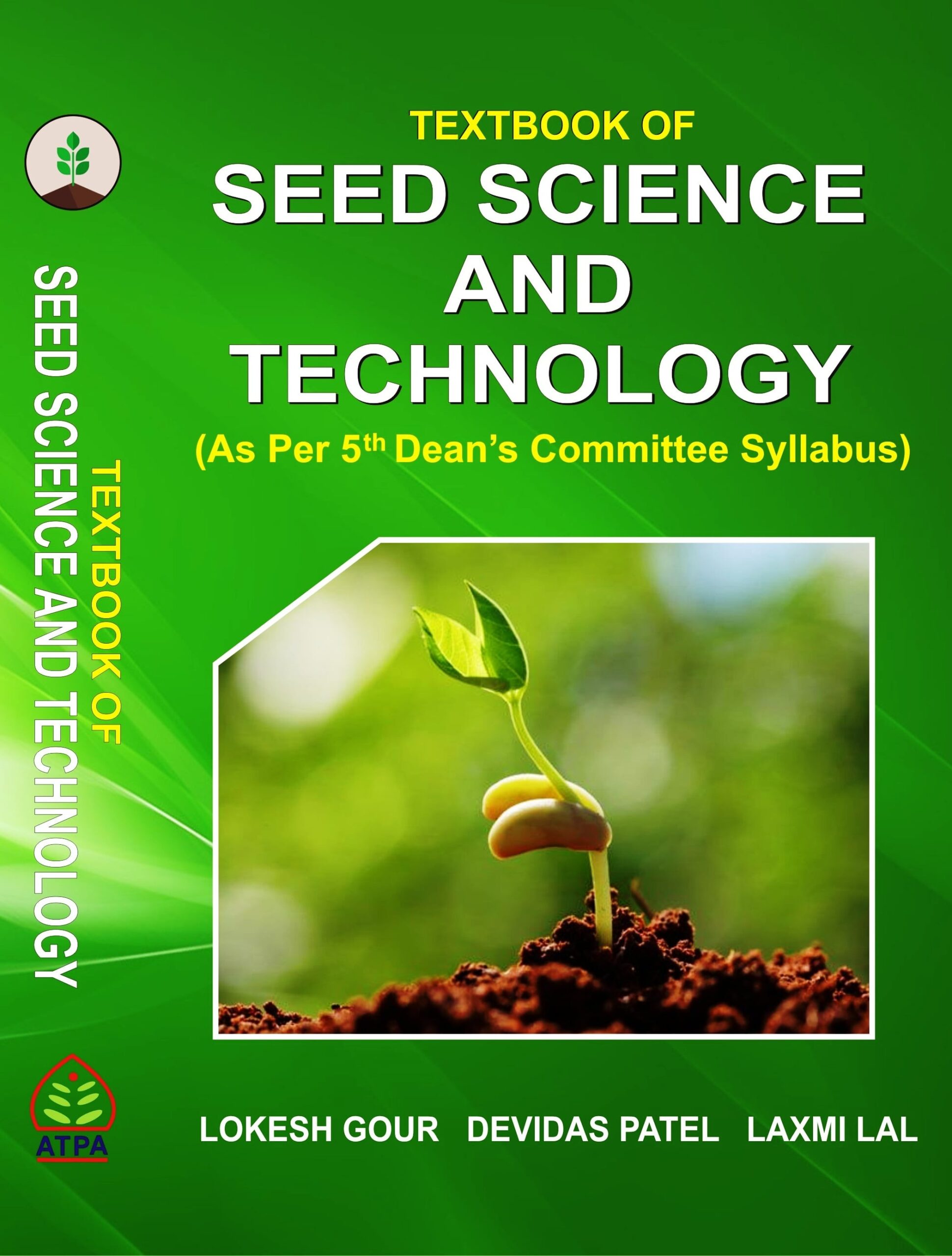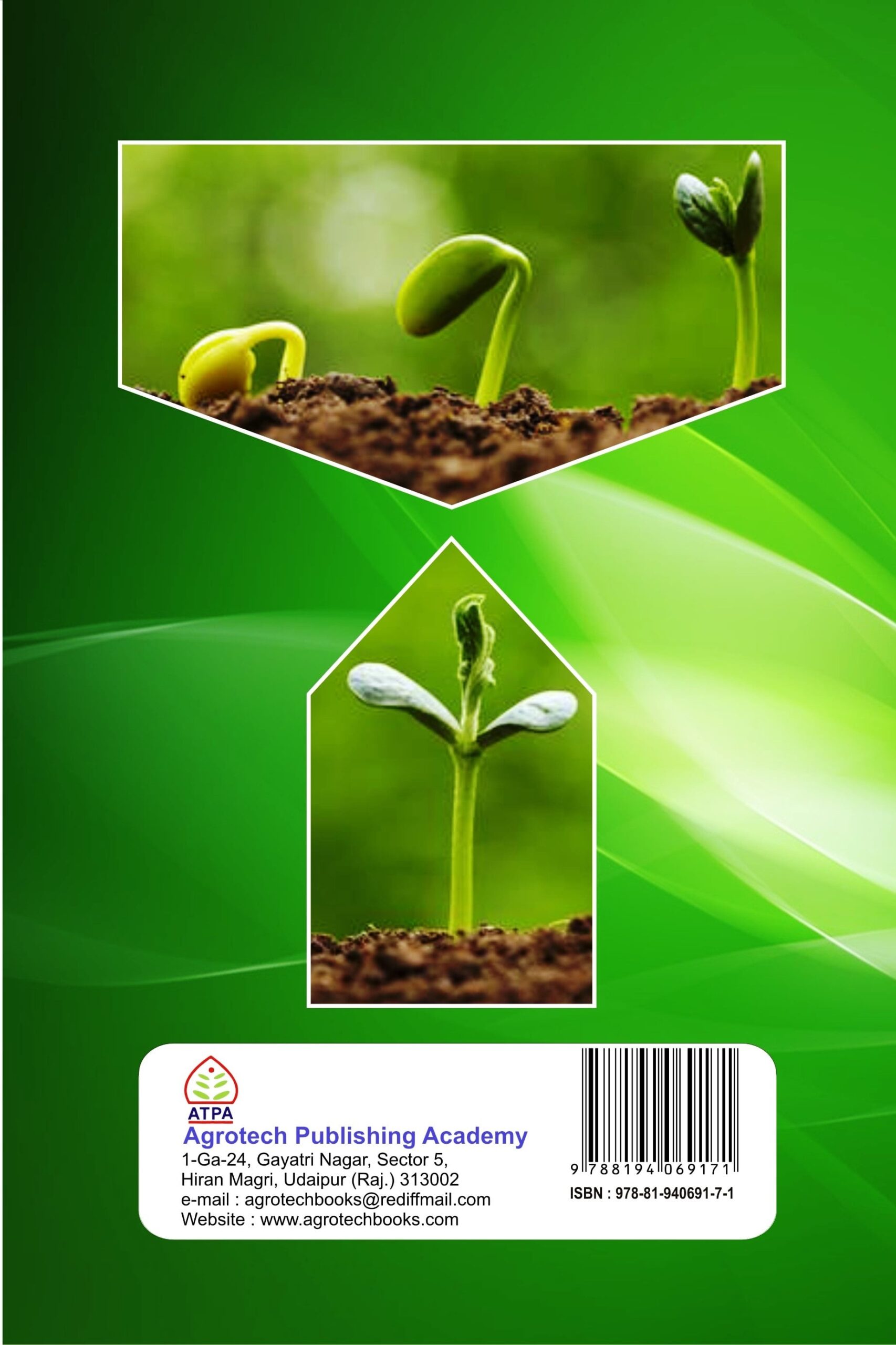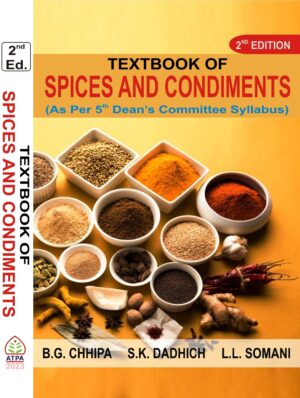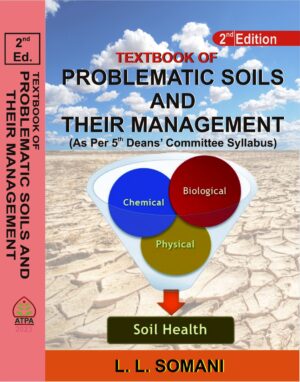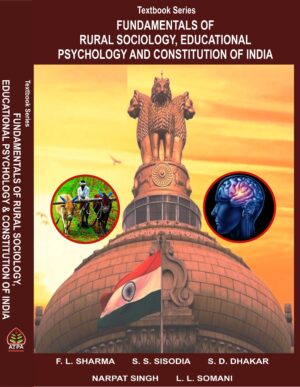TEXTBOOK OF SEED SCIENCE AND TECHNOLOGY
₹1,250.00
AUTHORS: LOKESH GOUR, DEVIDAS PATEL AND LAXMI LAL
PUBLISHING YEAR: 2020
ISBN: 9788194069171
© All Rights Reserved
Description
ABOUT THE BOOK
The history of agricultural progress from the early days of man has been the history of seeds of new crops and crop varieties brought under cultivation. In the early days it was achieved through the cultivation of indigenous but useful plants and those taken through introductions. Later through the well known techniques of selection, hybridization, mutation, polyploidization and plant biotechnology the scientists made available many new and better varieties. However, to the farmer all this scientific research would be of little value unless one gets seeds, which are genetically pure, high germination percentage and vigour, high purity, sound health etc., when the farmers do not get seeds possessing these qualities the yields they obtain may not be as expected. The pace of progress in seed production therefore, will largely depend upon the speed with which we are able to multiply and market good quality seeds of high yielding varieties.
Looking to the importance of seed the 5th dean’s Committee of ICAR has introduces a course on Principles of Seed Technology at UG level in all SAUs and Agricultural Colleges of India. Present book is an effort to provide all the information relevant to this course in a single book in simple language to be easily accessible for UG students. This book includes chapters on importance & scope of seed technology, genetic purity of seeds, seed quality, classes of seed, seed production technology for important crops, seed act, seed control order, detection of genetically modified crops, seed testing, processing, packaging, treatment, storage marketing besides the role of WTO.
CONTENT
| Sr. No. | Title | Page |
| SYLLABUS | 3 | |
| PREFACE | 4 | |
| ABOUT THE AUTHORS | 7 | |
| ABOUT THE BOOK | 9 | |
| CHAPTERS | ||
| 1 | History of Seed Industry in India | 9-15 |
| 2 | Introduction – Concept, Importance and Goals of Seed Technology | 16-24 |
| 3 | Seed Demand, Forecasting and Seed Production | 25-30 |
| 4 | Seed Quality- Classes of Seeds | 31-38 |
| 5 | Maintenance of Nucleus Seed and Breeder Seed | 39-43 |
| 6 | Development of Hybrids | 44-47 |
| 7 | Seed Production | 48-54 |
| 8 | Seed Production of Rice | 55-68 |
| 9 | Seed Production of Sorghum | 69-74 |
| 10 | Seed Production of Maize | 75-82 |
| 11 | Seed Production of Bajra (Pearl Millet) | 83-89 |
| 12 | Seed Production of Red gram (Pigeon Pea) | 90-91 |
| 13 | Seed Production of Green gram and Black gram | 92-93 |
| 14 | Seed Production of Bengal gram | 94-95 |
| 15 | Seed Production of Field pea | 96-98 |
| 16 | Seed Production of Sunflower | 99-103 |
| 17 | Seed Production of Castor | 104-109 |
| 18 | Seed Production of Cotton | 110-117 |
| 19 | Seed Production of Bhendi | 118-121 |
| 20 | Seed Production of Tomato | 122-127 |
| 21 | Seed Production of Brinjal | 128-132 |
| 22 | Seed Production of Chilli | 133-136 |
| 23 | Seed Production of Onion | 137-139 |
| 24 | Seed Production of Cucurbits | 140-141 |
| 25 | Organic Seed, Planting Material Production | 142-154 |
| 26 | Transgenic Crops | 155-173 |
| 27 | Deterioration of Crop Varieties and Methods of Control | 174-180 |
| 28 | Detection of GM Crops and Products | 181-188 |
| 29 | Seed Drying | 189-197 |
| 30 | Seed Cleaning | 198-208 |
| 31 | Seed Storage | 209-221 |
| 32 | Seed Testing | 222-227 |
| 33 | Varietal Identification through Grow Out Test and Electrophoresis | 228-232 |
| 34 | Seed Treatment | 233-242 |
| 35 | Seed Packing and Handling | 243-250 |
| 36 | Pricing Policy | 251-254 |
| 37 | Seed Marketing | 255-262 |
| 38 | Seed Certification | 263-282 |
| 39 | Testing, release and notification of varieties – CVRC SVRC.NSC APSSDC and APSSCA | 283-287 |
| 40 | Seed Act | 288-294 |
| 41 | The Seeds Control Order, 1983 | 295-300 |
| 42 | Seed Legislation In India | 301-305 |
| 43 | Seed Law Enforcement | 306-307 |
| 44 | New Seed Policy (1988) | 308-313 |
| 45 | National Seed Policy | 314-316 |
| 46 | World Trade Organisation- Protection of Plant Varieties and Farmers Rights Act- Intellectual Properties Rights- Plant Breeders Rights | 317-322 |
| Literature Cited | 323-324 | |
ABOUT THE AUTHORS
Dr. Lokesh Gour is deeply attached in the field of Genetics and Plant Breeding. Since 2018 he is actively engaged in research with hybrid rice development at JNKVV, Jabalpur (M.P.). Dr. Gour has obtained Ph.D. (Genetics and Plant Breeding) in 2018 from JNKVV, Jabalpur (M.P.). He has published more than 14 research and review articles in reputed and NAAS rated journals. The Scientist Associate Award of Science & Technology Society, Telangana and the Young Scientist Award by Astha Foundation was conferred on Dr. Gour for his excellent research work in the field of Genetics and Plant Breeding in the year of 2016 and 2017.
Dr. Devidas Patel has experience as Assistant Professor in B. M. College of Agriculture, Khandwa from 2016 to 2018 and at present he is actively working on the post of Scientist in Krishi Vigyan Kendra, Hoshangabad. He completed Ph.D (Genetics and Plant Breeding) from JNKVV in 2016. Dr. Patel also awarded by Chancellors Gold Medal and two national & international society awards viz., Young scientist award in 2016 and Excellence in Teaching Award in 2017. The author has published 10 research papers as main author in several National and International Journals and 15 other articles.
Laxmi Lal Somani is Retired Director Resident Instructions, MPUAT, Udaipur. He has over 400 research and technical articles to his credit. He has authored/edited over 145 scholarly books in various field of agriculture. Prof. Somani has been honored with several academic excellence awards for his outstanding achievements.
Additional information
| AUTHOR/AUTHORS | DEVIDAS PATEL, LAXMI LAL, LOKESH GOUR |
|---|---|
| PAGES | 324 |
| BINDING | Hard Back |
| PUBLICATION YEAR | 2020 |

